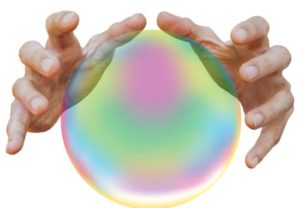WASHINGTON — Most people would rather not know what fate has in store for them the future, even if it would bring them happiness. That’s the takeaway of a study published by the American Psychological Association .
Researchers studied over 2,000 adults in Germany and Spain and found that 85 to 90 percent of them wouldn’t want to know about upcoming negative events in their futures. Moreover, 40 to 70 percent wouldn’t even want to know about the positive events either.

“In Greek mythology, Cassandra, daughter of the king of Troy, had the power to foresee the future. But, she was also cursed and no one believed her prophecies,” the study’s lead author, Gerd Gigerenzer of the Max Planck Institute for Human Development, says in a press release.
“In our study, we’ve found that people would rather decline the powers that made Cassandra famous, in an effort to forgo the suffering that knowing the future may cause, avoid regret and also maintain the enjoyment of suspense that pleasurable events provide,” he continues.
The participants were surveyed on a wide range of upcoming events, either positive or negative. Such events included the ability to know if they’d win a certain sports game, what they’d get for Christmas, or if their marriages would eventually end. Learning the gender of an unborn child was found to be the only revelation more participants said they’d want to know than those who didn’t (just 37 percent).
Interestingly, the researchers noted that the nearer an event, the less likely someone would want to find out the spoiler.
Researchers concluded that across the two countries, there is a consistent pattern of deliberate ignorance even though the people they studied varied in age, education and other aspects, according to the article, which was published in the Psychological Review.
“Wanting to know appears to be the natural condition of humankind, and in no need of justification. People are not just invited but also often expected to participate in early detection for cancer screening or in regular health check-ups, to subject their unborn babies to dozens of prenatal genetic tests, or to use self-tracking health devices,” says Gigerenzer. “Not wanting to know appears counterintuitive and may raise eyebrows, but deliberate ignorance, as we’ve shown here, doesn’t just exist; it is a widespread state of mind.”

Comments
Comments are closed.